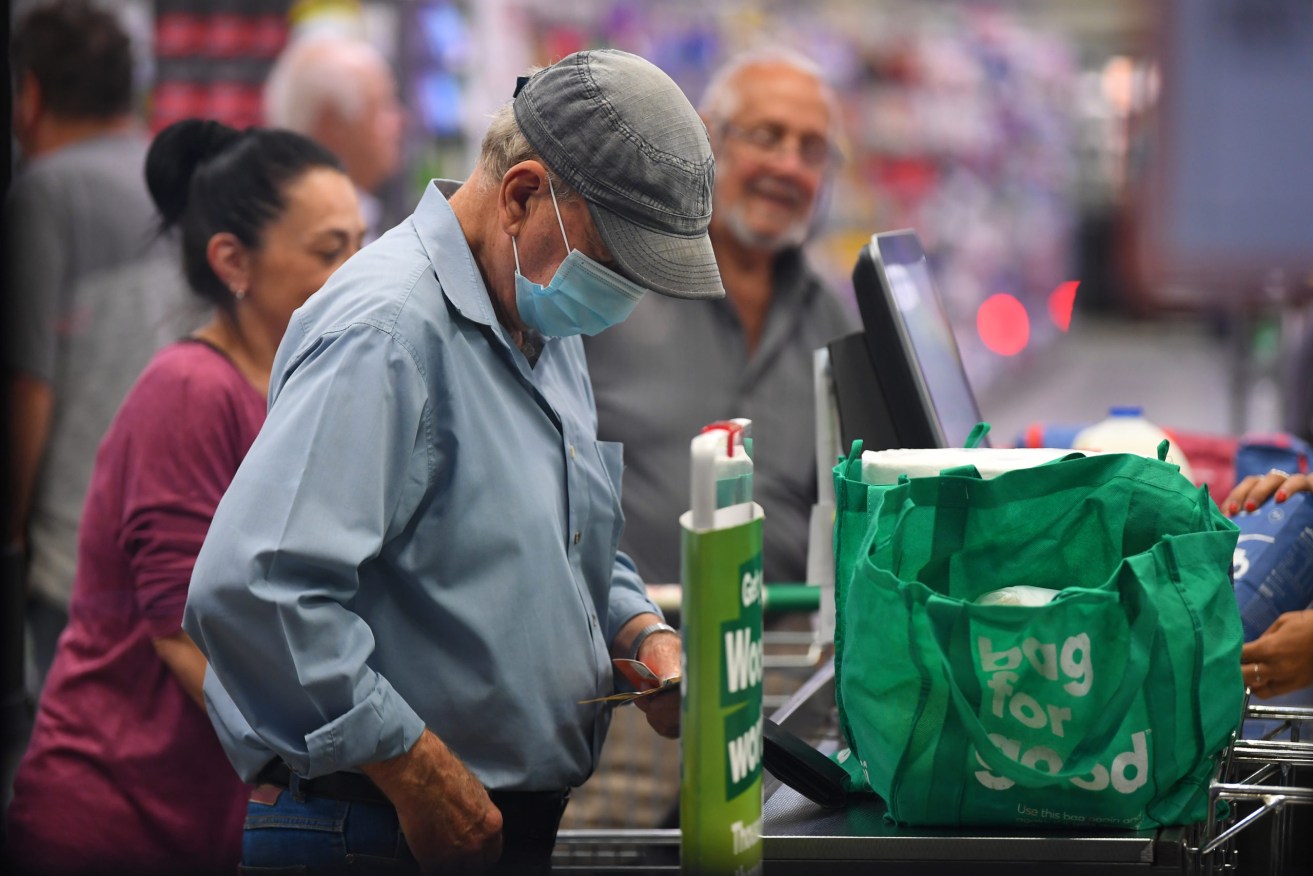Frontline workers deserve virus compo backup
State Parliament should act to ensure teachers, supermarket and service station staff, cleaners and others deemed essential during the pandemic crisis are given more adequate workers compensation protection if they fall sick, argues Kevin Purse.

Photo: AAP/James Ross
Who would have thought, three months ago, that our world would be turned upside down by a microscopic killer?
Hundreds of thousands of people have lost their jobs and, if not for government intervention, tens of thousands of businesses would have hit the wall.
The fightback against the virus has largely been based on border closures, shutdowns, isolation of hotspots and social distancing.
Of these, social distancing is crucially dependent on compliance by the public, us. But as we saw last month with Bondi Beach and the Ruby Princess cruise ship disaster, not everyone does the right thing.
On the upside, more and more Australians now appear to have got the message that social distancing saves lives. But there is still a long way to go.
Health and safety remains a serious concern for workers who may come into contact with the virus in the course of discharging their duties. Quality workplace health and safety practices are essential to minimising coronavirus risks.
There are huge numbers of workers who are now potentially at risk due to their commitment in supplying the community’s everyday needs.
We are all familiar with doctors and nurses who do a wonderful job under often very difficult conditions. Now we have many other workers who are potentially exposed to the virus. Supermarket and other retail workers, airport baggage handlers, emergency services workers, teachers, childcare workers, and cleaners readily come to mind.
Unlike many of us who can work from home, these workers are right up close to the front line. This was highlighted by the recent incident at Adelaide airport, on 1 April, with at least 12 Qantas baggage handlers now infected by the virus. A further hundred-plus airport workers are also now in self isolation.
At this stage, it is not clear how this calamity came to be. It is now up to the WHS regulator to investigate the causes, determine whether any prosecutions are warranted and outline any improvements to prevent any future tragedies.
While health and safety is paramount, workers compensation is also very important. Compo is particularly relevant for workers who are unable to work as a result of exposure to the virus.
Under workers compensation laws, diseases are typically treated differently from physical injuries such as burns, falls or fractures.
The rationale was that diseases could often arise from non-work-related sources. That was fair enough, in principle.
The downside was that the process is highly litigious and expensive. Workers were often denied compensation, even though it was more likely than not that their disease was work-related. It was like playing cards with a marked deck.
Over time governments have amended the laws to make the rules less onerous. The underlying legal principle is that certain diseases should be presumed to be work-related in the absence of proof to the contrary.
The most recent illustration of this approach was in 2013. Legislation was amended so that 12 types of cancers suffered by South Australian firefighters were eligible for workers compensation unless it could be proved otherwise. Feedback indicates it has worked well both for workers and the fire service.
The reverse onus principle has now been raised by South Australian Labor leader, Peter Malinauskas, in relation to coronavirus disease. This is particularly welcome in view of the current grim circumstances. Premier Stephen Marshall has also expressed interest.
Treasurer Rob Lucas however has dismissed the proposal out of hand. The Council of Small Business Organisations and the Australian Convenience and Petroleum Marketers Association have also chosen to oppose reform.
The advice to their members to date is, close down your businesses if legislation is passed. With friends like this who needs enemies.
Scaremongering is not a solution.
Most small business people have a lot on their hands, especially right now. Understandably, many may not be aware that workers with coronavirus disease are eligible for workers compensation under the current laws.
The only change being sought is a change in the onus of proof to limit excessive litigation. This will increase the number of claimants, but only until the virus has receded.
What is being proposed is also eminently affordable.
South Australia’s workers compensation scheme is in a very strong financial position, with average employer premiums at an all-time low of only 1.70 % of payroll.
It is now up to parliament to step up and assist workers and the families brought down by the coronavirus epidemic.
Dr Kevin Purse is currently an Adjunct Research Fellow with Central Queensland University and a former Occupational Health and Safety Commissioner and WorkCover Board member.
Want to comment?
Send us an email, making it clear which story you’re commenting on and including your full name (required for publication) and phone number (only for verification purposes). Please put “Reader views” in the subject.
We’ll publish the best comments in a regular “Reader Views” post. Your comments can be brief, or we can accept up to 350 words, or thereabouts.




